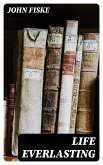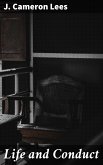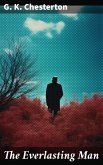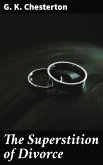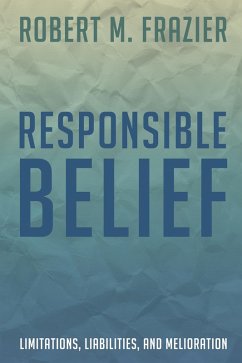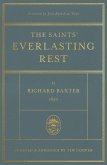In "Life Everlasting," John Fiske deftly intertwines philosophy and science, exploring the complex idea of immortality through a rich narrative that challenges conventional perceptions of life and death. The book, written in a lyrical yet analytical prose style, seeks to reconcile spiritual thoughts with emerging scientific theories of the late 19th century, allowing readers to grasp profound existential questions. Through a careful examination of both natural and supernatural themes, Fiske offers a unique perspective that reflects his abiding interest in the evolution of consciousness and human destiny in a rapidly modernizing world. John Fiske was a prominent American philosopher and historian, deeply influenced by Transcendentalism and the scientific advancements of his time. His academic pursuits at Harvard, along with his engagement with thinkers like Ralph Waldo Emerson and Charles Darwin, significantly shaped his worldview. Fiske's fascination with the interplay of ideas across disciplines drove him to explore the notion of a life beyond the physical, culminating in this captivating work that invites contemplation on life'Äôs ultimate mysteries. This book is a compelling read for anyone interested in philosophical inquiries about existence and the nature of the universe. Fiske's insightful prose encourages readers to ponder their place within the grand tapestry of life, making "Life Everlasting" an indispensable addition to the library of thinkers and seekers alike.
Dieser Download kann aus rechtlichen Gründen nur mit Rechnungsadresse in A, B, BG, CY, CZ, D, DK, EW, E, FIN, F, GR, H, IRL, I, LT, L, LR, M, NL, PL, P, R, S, SLO, SK ausgeliefert werden.



